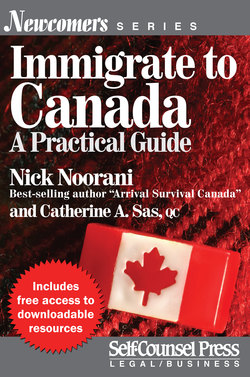Читать книгу Immigrate to Canada - Nick Noorani - Страница 18
На сайте Литреса книга снята с продажи.
4.2 Choosing a postsecondary school
ОглавлениеCanada’s schools are as diverse as its population, from internationally recognized universities such as the University of Toronto, University of British Columbia, and McGill University, to medium-sized colleges and universities as well as private technical and language institutes, including English as a Second Language (ESL) schools.
Universities focus on the development of critical thinking and research skills as students work toward a bachelor’s (undergraduate) degree, a Master’s (graduate) degree, or a PhD (doctorate) degree. Class sizes tend to be large, with some lecture halls counting hundreds of students although attending smaller tutorials or labs may also be part of the class requirement. Many universities also offer student housing, and lots of extracurricular and sport activities. Tuition costs are highest at universities.
Colleges and technical institutes offer a range of applied programs that are typically focused on preparing you for a career. At one of these types of schools, you will probably be working toward a diploma, a certificate, an applied degree, or transfer credits toward a university program. Some colleges also offer apprenticeship training for the trades (e.g., carpentry, electrical). The hybrid “university college” may also offer undergraduate degrees. Classes range in size, but are typically smaller than in universities. Tuition rates are also less expensive than universities.
Private career colleges are private businesses that could be either for-profit or nonprofit. They do not receive government funding like publicly funded colleges and universities, so fees may be quite high. They offer certificate and diploma programs in many fields such as business, electronics, and health services, with flexible learning schedules, enrolment at many different times during the year, and compressed programs that deliver training over a short time. Some private institutions, including some English language schools, are not regulated by the government so be sure to do plenty of research before you pay. You want to ensure that the school you are attending is recognized by CIC so that you can obtain valuable work experience both while you are attending classes as well as after graduation.
Canada Immigration has recently introduced a list of designated learning institutions. In order to be able to study in Canada, you must have a letter of acceptance from the designated learning institution. A list of these designated learning institutions at the postsecondary level is available on CIC’s website (www.cic.gc.ca/english/study/study-institutions-list.asp).
